Windows 8 Launch: Strict Restrictions Will Affect Games Development
Microsoft bans 18 rated games on Windows 8
With the launch of Windows 8 on 26 October, Microsoft is looking to consolidate all of its gaming services and devices into one ecosystem, but content restrictions could squeeze game developers out of the Windows Store.
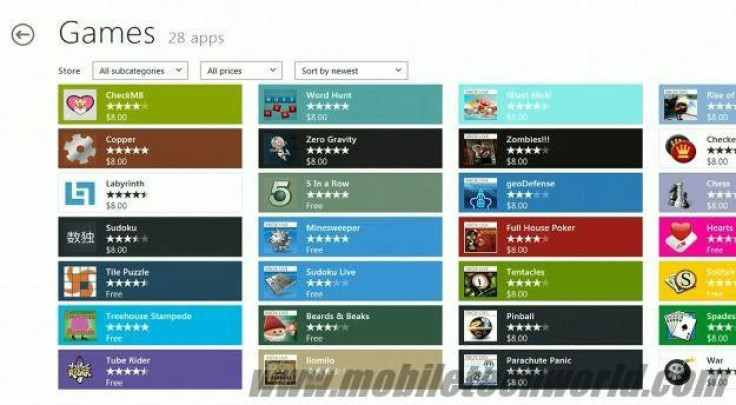
Xbox Games, Xbox Music and Xbox Video will be available on the Surface tablet, PC and the Xbox 360, allowing users to synchronise content and access it from their console, mobile or computer.
But rather than open computer games up by making them instantly accessible, stringent content guidelines and certifications processes are set to make games harder to get onto the Windows Store in the first place.
Development democracy
Similar to Apple's formula, whereby the iPhone and iPad can only run games downloaded from the App Store, Windows 8 has already sparked concern among game developers who believe that a closed monopoly on operating systems will squeeze independent software designers out of the PC community.
Indie developers and modders have thrived thanks to the open-ended nature of PC gaming, and Windows 8, according to some, could mark the end of that development democracy.
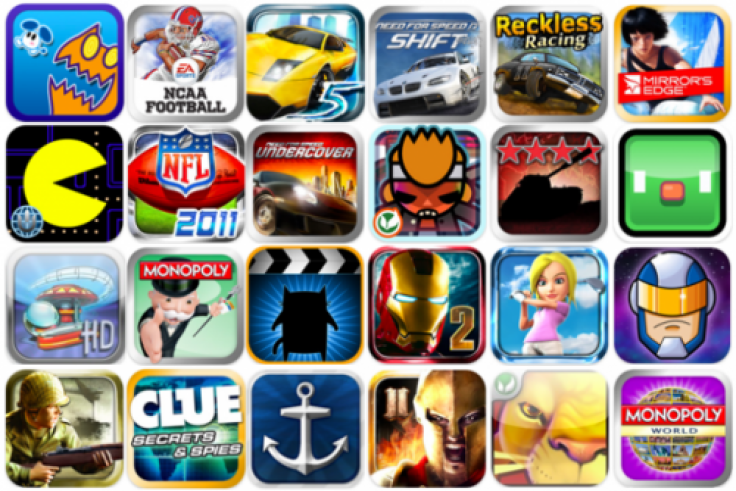
Gabe Newell, of Valve Software has been particularly outspoken about Windows 8, telling VentureBeat that he thinks the OS will be a "catastrophe" for PCs:
"When you think about the kinds of digital goods that people want to have, there has to be a richness...Windows 8 is a catastrophe for everyone in the PC space...Valve wouldn't exist if it weren't for the PC. Id Software, Epic, Zynga, Facebook, and Google wouldn't have existed without the openness of the platform.
"I think there's a strong temptation to close the platform," continued Newell. "If people look at what they can accomplish when they can limit competitors' access to their platform, they say, 'Wow, that's really exciting.' Even some of the people who have open platforms, like Microsoft, get really excited by the idea that Netflix has to pay them rent in order to be on the Internet.
"That's not how we got here, and I don't think that's a very attractive future."
Minecraft creator Markus Perrson, better known as Notch, has also been critical of Windows 8, revealing via Twitter that he refused to certify his game for the operating system:
"Got an email from Microsoft, wanting to help 'certify' Minecraft for Win 8. I told them to stop trying to ruin the PC as an open platform.
"I'd rather have Minecraft not run on Win 8 at all than to play along. Maybe we can convince a few people not to switch to Win 8 that way."
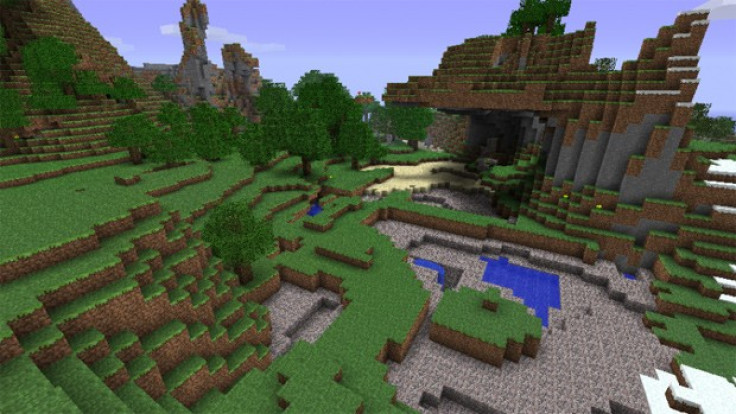
Certification Requirements
It's that certification process that seems to have developers concerned, especially Newell and Perrson whose respective products are built on accessibility and open-sourcing. Valve's Steam platform offers worldwide distribution to a range of independent and modified games, whereas Minecraft was developed in stages, releasing several free betas to its dedicated fanbase before launching proper.
For games to appear in the Windows 8 Store, however, they have to tick several boxes listed by Microsoft, which enforce content guidelines. In particular, games certified as inappropriate for under 16-year-olds will not be allowed to feature on the Windows Store in Europe; particular lines from the Windows 8 App Certification Requirements explain the following:
- Your app must not contain adult content, and metadata must be appropriate for everyone. Apps with a rating over PEGI 16, ESRB MATURE, or that contain content that would warrant such a rating, are not allowed.
- Your app must not contain content or functionality that encourages, facilitates, or glamorizes illegal activity.
- Your app must not contain content that encourages, facilitates or glamorizes excessive or irresponsible use of alcohol or tobacco products, drugs or weapons.
- Your app must not contain excessive or gratuitous profanity.
Other rules state:
- Your app must not contain content that advocates discrimination, hatred, or violence based on membership in a particular racial, ethnic, national, linguistic, religious, or other social group, or based on a person's gender, age, or sexual orientation
- Your app must not contain content or functionality that encourages, facilitates or glamorizes illegal activity
- Your app must not contain or display content that a reasonable person would consider to be obscene
- Your app must not contain content that is defamatory, libelous or slanderous, or threatening
- Your app must not contain content that encourages, facilitates or glamorizes excessive or irresponsible use of alcohol or tobacco products, drugs or weapons
This means that games like Grand Theft Auto and Call of Duty will not be distributed via the Windows 8 Store, and that independent developers who create similarly graphic content will not be able to have their games certified.
Leading the charge
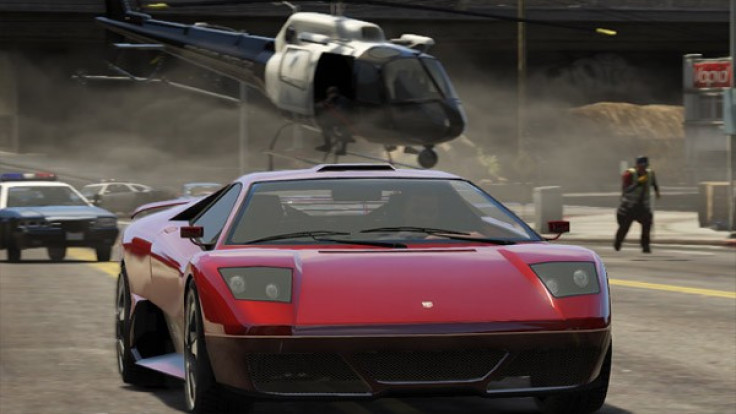
PCs running Windows 8 will not be so affected, with no announcements so far that Microsoft will be locking down desktops in the same way that mobiles and tablets will be restricted. The Windows Store on PC will only provide certified games, but Windows 8 desktops will remain open. But for independent game developers, who find their majority audience in smaller apps and tablet games, any restrictions present a problem.
Leading the charge that games can be culturally relevant artworks, independent game developers need a distribution platform that gives them the space to freely create.
Steam's Greenlight initiative has already proven immensely popular among artistically minded devs, and has so far commissioned more than thirty independent games to appear on Steam.
Windows 8, despite integrating SmartGlass technology to make the 360 dashboard more accessible, is actively working to marginalise computer games; though any game or game app submitted to the Store will run afoul of the content restrictions, movies and television programmes will not.
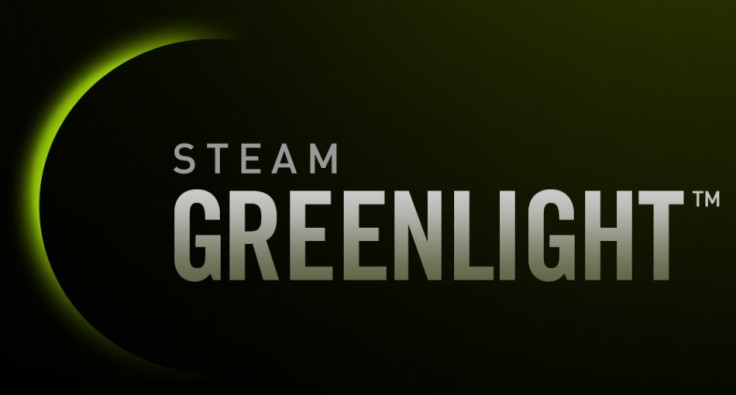
Game developer Casey Muratori sees this as limiting game makers creativity, writing on his blog Critical Detail, that open software is what brought PC gaming to where it is today:
"Experimentation on open platforms is one of the primary sources of innovation in the computer industry. There are no two ways about that. Open software ecosystems are what gave us most of what we use today, whether it's business software like the spreadsheet, entertainment software like the first-person shooter, or world-changing revolutionary paradigms like the World Wide Web.
"It will be a much better world for everyone if this kind of innovation continues. Developers, consumers, and even Microsoft should want the next twenty years to look like the last twenty: year after year of great new and previously unattainable things, brought to you by motivated, creative developers who were free to go wherever their vision took them, knowing full well that if they made something great, there was no barrier between them and disseminating it to the world.
"Is [Microsoft] willing to risk alienating developers to the point where they actively promote and foster competing operating systems as their flagship platforms because Windows no longer offers them the freedom to develop and distribute their software the way they choose?"
Unfortunately, the answer seems to be yes. With spaces like Steam offering unbridled opportunities for new developers' voices to be heard, the overbearing content restrictions enforced by Windows 8 could not look more out of step.
Given the current gaming climate, where more and more players are looking to niche and independent games, any level of censorship or creative control is potentially alienating, especially considering that, as Muratori also points out, even games like Skyrim will not be eligible for the Windows Store.
With its thriving community of modders and hobbyists, the PC gaming space has always provided a more colourful and freeform alternative to the console market.
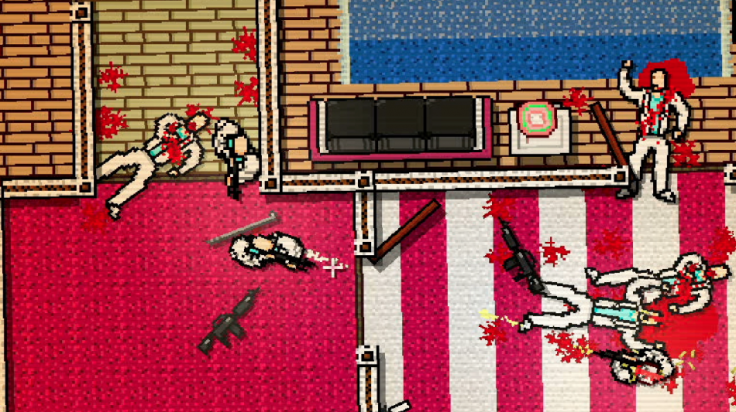
Windows 8 is set to merge mobile, tablet and console gaming with the PC experience in the hopes of providing a single, accessible ecosystem. But in doing so, the censorship practices that lead so many users to Jailbreak their iPhone are being imposed on formerly unrestrained PC space.
Reaction from developers has already been extremely negative, with id Software CEO John Carmack - along with Notch and Gabe Newell - expressing dismay towards Windows 8, using his keynote speech at QuakeCon to admit: "There's nothing I'm looking forward to [about Windows 8]."
Whether gamers will react in a similar way when Windows 8 launches on 26 October, remains to be seen.
© Copyright IBTimes 2024. All rights reserved.






